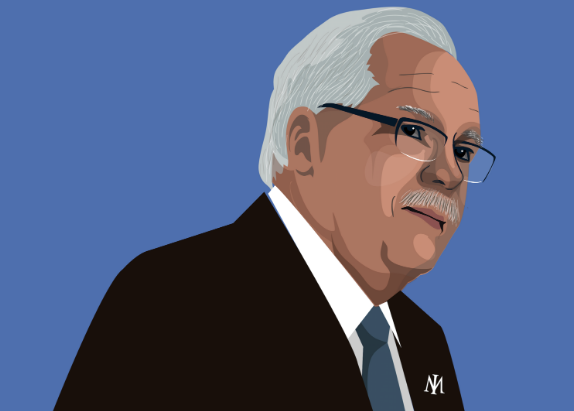Introduction to James Sinegal and his Success with Costco
James Sinegal, the co-founder and former CEO of Costco, is a name that resonates with integrity and innovation in the business world. His approach to retail not only revolutionized how we shop but also set a high standard for ethical practices in business. Under his leadership, Costco transformed from a small warehouse club into one of the largest retailers globally. The company’s commitment to treating employees fairly and valuing customer satisfaction speaks volumes about Sinegal’s philosophy.
As consumers become increasingly aware of corporate ethics, Sinegal’s influence serves as an important example. What can we learn from his journey? Let’s explore how James Sinegal shaped business ethics and why his legacy continues to inspire today’s entrepreneurs and leaders alike.
The Importance of Business Ethics
Business ethics form the backbone of any successful organization. They guide decision-making and shape company culture, influencing how businesses interact with employees, customers, and the community.
Ethical practices foster trust. When a business demonstrates integrity, it builds strong relationships with stakeholders. Trust leads to loyalty—something invaluable in today’s competitive market.
Moreover, ethical companies often enjoy a positive reputation. This not only attracts customers but also top talent who want to be associated with organizations that prioritize values over profits.
Additionally, adhering to ethical standards can mitigate risks. Companies that operate transparently are less likely to face legal issues or scandals that could damage their brand.
In an era where consumers are more informed than ever, prioritizing business ethics is no longer optional; it’s essential for long-term success and sustainability within any industry.
Sinegal’s Ethical Approach to Business
James Sinegal’s ethical approach to business set a new standard in the retail industry. He believed that treating employees well directly correlates with customer satisfaction.
Sinegal emphasized transparency. He fostered an open environment where feedback flowed freely between management and staff. This practice built trust, making employees feel valued and empowered.
Another cornerstone of his philosophy was fair wages. Unlike many competitors, Sinegal prioritized competitive pay for all workers, understanding that happy employees lead to loyal customers.
Additionally, he championed integrity in dealings with suppliers. By prioritizing long-term relationships over short-term gains, he cultivated a culture rooted in mutual respect.
His focus on ethics wasn’t just about profit; it was about creating a sustainable business model that respected everyone involved—from employees to customers and suppliers alike.
Impact on Employees and Customers
James Sinegal believed that happy employees lead to satisfied customers. His approach at Costco was revolutionary for its time. Instead of pushing for low wages and high pressure, he prioritized employee welfare.
Sinegal championed fair pay and benefits, creating a sense of loyalty among staff. This commitment translated into better service on the floor. Employees felt valued, which reflected in how they treated customers.
Customers noticed this difference immediately. When shopping at Costco, they encountered knowledgeable staff eager to help. The atmosphere became one of community rather than mere transactions.
This focus on ethical practices cultivated trust between consumers and the brand. Shoppers appreciated not just the savings but also the values behind their purchases—values rooted deeply in James Sinegal’s vision for business ethics.
Sustainable Practices at Costco
Costco has made significant strides in sustainability, showcasing a commitment that resonates with consumers. The company implements various eco-friendly practices across its operations.
One notable initiative is their focus on sourcing sustainable seafood. Costco partners with organizations to ensure that its fish and shellfish come from responsible fisheries.
The retailer has also invested heavily in renewable energy. Many of its warehouses utilize solar panels, reducing reliance on non-renewable resources.
Packaging is another area where Costco excels. The company aims to minimize waste by using recyclable materials and optimizing packaging designs for efficiency.
Additionally, there’s an emphasis on responsible agriculture. Costco works closely with suppliers to promote ethical farming practices that benefit both the environment and local communities.
These efforts reflect James Sinegal’s vision for a business model rooted in ethics and responsibility towards the planet.
Comparison to Other Companies
James Sinegal’s leadership at Costco sets a distinct benchmark in the retail industry. Unlike many competitors, he prioritized employee welfare and customer satisfaction over short-term profits.
While other companies often cut costs by minimizing wages or benefits, Sinegal understood that investing in his workforce leads to higher productivity and loyalty. This approach directly contrasts with firms that focus solely on shareholder returns.
Costco’s commitment to ethical sourcing also stands out. Many retailers compromise quality for lower prices. However, under Sinegal’s guidance, Costco emphasized sustainable practices and fair labor conditions throughout its supply chain.
This stark difference illustrates how business ethics can drive success without sacrificing integrity. The ripple effect of these values resonates not only within the company but also influences consumer expectations across the sector.
Legacy of James Sinegal’s Influence on Business Ethics
James Sinegal’s influence on business ethics transcends his time at Costco. His commitment to integrity and transparency reshaped expectations in the retail sector.
Many leaders view him as a role model. They admire how he prioritized employee welfare and customer satisfaction over sheer profit margins. This approach has inspired a new generation of entrepreneurs who understand that ethical practices can drive both loyalty and revenue.
Moreover, Sinegal’s emphasis on fair wages set a standard that challenged industry norms. It sparked conversations about corporate responsibility across various sectors.
His legacy continues through organizations striving for ethical leadership today. Companies now recognize that success shouldn’t come at the expense of values.
As more businesses adopt these principles, they cultivate an environment where trust thrives, echoing Sinegal’s vision long after his departure from Costco.
Conclusion
James Sinegal is more than just a successful entrepreneur; he embodies the principles of business ethics that many strive to emulate. His journey with Costco illustrates how ethical practices can coexist with profitability. By prioritizing fair treatment of employees and customers alike, Sinegal has set a benchmark for corporate responsibility.
His influence stretches far beyond Costco’s aisles, inspiring other leaders in the industry to adopt similar values. The sustainable practices initiated under his leadership not only cater to consumer demand but also serve as a model for responsible business operations.
As we look at today’s business landscape, it’s clear that James Sinegal’s approach continues to resonate. Companies are increasingly recognizing that doing good often leads to doing well financially. The legacy left by Sinegal highlights the profound impact ethical conduct can have on shaping corporate culture and driving long-term success.


